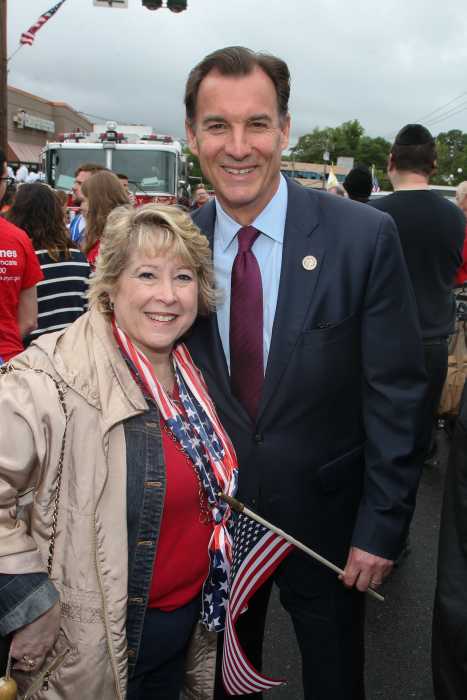By Madina Toure
The state Assembly passed the anti-human trafficking bill Monday, the first bill the chamber has supported in Gov. Andrew Cuomo’s 10-point women’s equality agenda.
The bill, which was passed as part of anti-human trafficking package of bills, increases penalties across the board for human trafficking and labor trafficking. It increases degrees of aggravated patronizing of a minor, creating a civil action for victims of trafficking against the perpetrators.
It also raises sex trafficking to a class A violent felony and labor trafficking to a class D violent felony and creates a class E felony of patronizing a person for prostitution in a school zone.
State Assemblyman David Weprin (D-Fresh Meadows) said the bill has been negotiated for a while and that it has many provisions.
“The basic thing is to prevent young girls from being sex trafficked into prostitution and protecting them and not treating them like criminals and increasing penalties for the real criminals who are taking advantage of and using these children,” Weprin said.
The Assembly’s anti-human trafficking package included bills mandating prostitution offenses and services to human trafficking victims, establishing a human trafficking hotline, adding members to the board of the interagency task force on human trafficking, creating a standard uniform anti-trafficking recognition training program and exempting victims of sex trafficking from the DNA databank fee.
The Senate passed the anti-human trafficking bill in the women’s equality agenda Jan. 12. In June 2013, Cuomo’s Women’s Equality Act failed to pass the state Legislature by session’s end despite widespread support in the state Assembly because of one provision bolstering abortion rights.
The 10-point bill — now nine as one of the bills was passed as part of another law — set out to address unequal pay, reproductive rights and discriminatory practices against women while tightening penalties against sexual harassment and sex trafficking and received mostly bipartisan support.
The Senate has passed eight of the nine bills, according to Scott Reif, a spokesman for the Senate Republicans.
The Assembly, for its part, is still discussing the remaining seven bills in the agenda, said Dan Cho, Weprin’s director of communications and intergovernmental relations.
State Sen. Toby Stavisky (D-Flushing) said human trafficking affects the most vulnerable individuals in society, including those who are poor and immigrants.
“I think the point here is that human trafficking is such a serious problem, such a terrible problem, that it’s time we pass it,” Stavisky said.
In October, Cuomo signed a law requiring case records involving 16- or 17-year-old victims to be sealed so that future employers cannot find out about their history.
It also classifies young victims as sexually exploited children rather than adults and gives them youthful offender status if they are prosecuted for prostitution.
State Sen. Jose Peralta (D-East Elmhurst), whose district includes Roosevelt Avenue, the epicenter of human trafficking in the tri-state area, was overall pleased with the proposal but said it misses a key part: coercion of minors.
New York is currently one of four states that still has to prove coercion to indict or convict individuals who commit trafficking on girls when they are minors, Peralta said.
“You have to prove that the minor has been coerced to be trafficked,” he said. “In other states, you don’t have to prove that element, and that piece has been eliminated from the final version.”
Assemblywoman Nily Rozic (D-Fresh Meadows) said the bill is a critical step toward increasing protections for individuals who have been under-served and who are at risk.
“The legislation we passed aims to provide comprehensive support services for victims and increase penalties for traffickers who must be held accountable,” Rozic said in a statement. “I am proud to be a part of the Assembly’s efforts to battle this epidemic with legislative solutions that focus on prevention and relief.”
Stavisky said the passage of the anti-human trafficking bill is not the end of the fight.
“Passing the human trafficking bill does not mean that we are passing the entire women’s agenda package,” she said. “We can’t call it a success until all parts of it are enacted.”
Reach reporter Madina Toure by e-mail at mtour


































